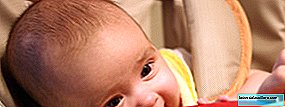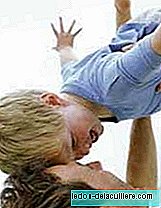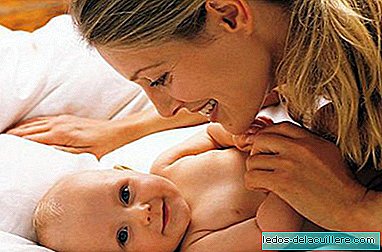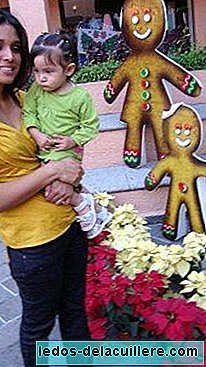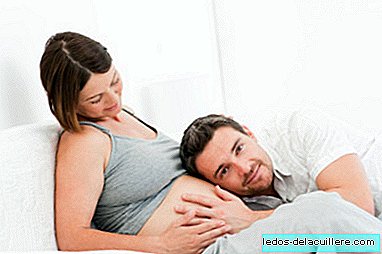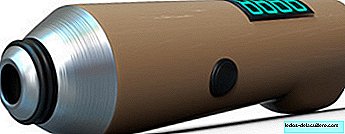
Technology applied to health advances in giant steps. The last is a pen-shaped device, which is able to detect if a child suffers from meningitis. Its creator is the Spanish startup New Born Solutions, based in the Barcelona Science Park.
Neosonics is a sophisticated precision engineering system that uses high frequency ultrasound to count, non-invasively, white blood cells in the cerebrospinal fluid, under the infant fontanel, the region of the head where the bones are not yet closed. This data will be used to rule out the presence of meningitis.
Avoid lumbar puncture

Xavier Jiménez, founder and CEO of New Born Solutions, notes that "It is a unique clinical prototype in the world for its characteristics and its medical application."
Just place it on the baby's skull and a high resolution ultrasound system (which shapes the pen) allows to detect the levels of white blood cells contained in the cerebrospinal fluid (responsible for protecting the brain and spinal cord). This is the data used to determine whether or not there is meningitis.
So far, the only test that exists to rule out if a child suffers from the disease is to have a lumbar puncture. It consists of introducing a fine needle into the lower part of the spine, to obtain a small sample of cerebrospinal fluid.
Unfortunately, this invasive test is not without risks and in 95 cases (as explained by the Spanish starup), it is negative. Add that:
"The white blood cell count of the cerebrospinal fluid obtained through the lumbar puncture immediately involves medication, regardless of the bacteriological diagnostic results, since we must wait for the results of the cultures."
At the moment this kind of pen is still a prototype, but it is expected that it can begin to be marketed in Spain from the year 2020. Thanks to it, lumbar puncture will only be necessary when the test is positive, to extract the liquid and thus know , by cultures and other techniques, the type of germ that has caused meningitis (virus or bacteria).
Meningitis, an avoidable disease

As explained by the Spanish Association of Pediatrics (AEP) It is characterized by the inflammation of tissue membranes (meninges), which completely cover the brain and spinal cord. Among the meninges there is a fluid, the cerebrospinal fluid, which, in meningitis, is altered due to the arrival of cells (leukocytes) and inflammatory elements that act as defenses against infection.
Inflammation usually occurs after an infection caused by viruses or bacteria that reach the nervous system. The most frequent are: pneumococcus, meningococcus (B and C), Haemophilus and enteroviruses. But there are another series of germs, or even some drugs, that can also cause a meningitis picture.
According to the AEP, meningitis affects between 400 and 600 people every year, 10 percent with fatal consequences, and about 30% are left with neurological sequelae.
The best prevention is the immunization of children with vaccines, included in the national vaccination schedules: against meningococcus C (at four months of life, at 12 months and at 12 years), Haemophilus and pneumococcus (in the most communities). With this measure, there has been a very marked decrease in the number of meningitis caused by these bacteria. Unfortunately, there are still cases.
The meningitis B vaccine
As indicated by the Vaccine Advisory Committee of the AEP, the meningococcal B vaccine is still pending in the universal and free calendar.
Parents should buy this vaccine, Bexsero not funded at the pharmacy.
According to the advice of the AEP it must be administered after two months of life, with a margin of 15 days if other vaccines are applied. The doses vary according to the age of the child: If the baby receives the first dose of the Bexsero between three and five months, he needs two doses in primary vaccination (with a minimum interval of two months between doses) + a booster dose between 12 and 15 months.
If the child receives this vaccine for the first time between two and 10 years, he must wait a month between one dose and another. For vaccination after 10 years, there is also the Trumenba vaccine, recently authorized in Spain.
Even with everything explained, AEP wants to reduce the anxiety that the diagnosis causes in parents explaining that "severity and prognosis vary depending on the cause". Bacterial meningitis is serious. and causes, in some children, important sequelae (such as deafness) and even death.
But most meningitis are caused by a virus (enterovirus) and they evolve well With proper treatment.
Photos | New Born Solutions



